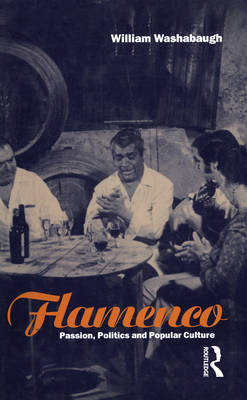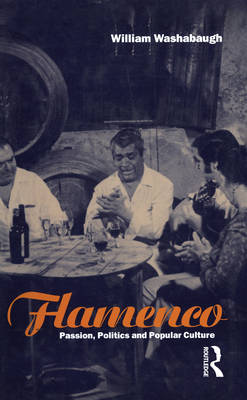
- Afhalen na 1 uur in een winkel met voorraad
- Gratis thuislevering in België vanaf € 30
- Ruim aanbod met 7 miljoen producten
- Afhalen na 1 uur in een winkel met voorraad
- Gratis thuislevering in België vanaf € 30
- Ruim aanbod met 7 miljoen producten
Zoeken
Omschrijving
Flamenco is renowned for its passion and flamboyance. Yet because it generates such visceral responses, it is often overlooked as a site for subtler discourses. This absorbing book articulates powerful and convincing arguments on such key subjects as ethnicity, irony, authenticity, the body and resistance. Franco's 'politics of original sin' had left its mark on every aspect of Spanish life between 1936 and 1975, and flamenco music was no exception. Although widely portrayed as an apolitical, even frivolous form of entertainment, flamenco is shown here to have played a role in both the strategies of Franco's supporters and of those who opposed him. The author explores how the meaning of flamenco shifts according to the social, cultural and historical contexts within which it appears. In so doing, he demonstrates that flamenco is an ideal subject for analyzing the construction and appropriation of popular culture, given the way in which it was developed for middle-class audiences, converted into grand spectacle, and conscripted to serve political ends.
Specificaties
Betrokkenen
- Auteur(s):
- Uitgeverij:
Inhoud
- Aantal bladzijden:
- 230
- Taal:
- Engels
- Reeks:
Eigenschappen
- Productcode (EAN):
- 9781859731710
- Verschijningsdatum:
- 1/09/1996
- Uitvoering:
- Hardcover
- Formaat:
- Genaaid
- Afmetingen:
- 143 mm x 224 mm
- Gewicht:
- 390 g

Alleen bij Standaard Boekhandel
+ 549 punten op je klantenkaart van Standaard Boekhandel
Beoordelingen
We publiceren alleen reviews die voldoen aan de voorwaarden voor reviews. Bekijk onze voorwaarden voor reviews.











